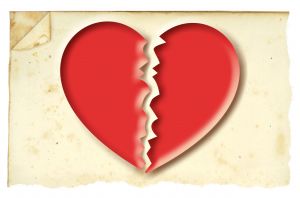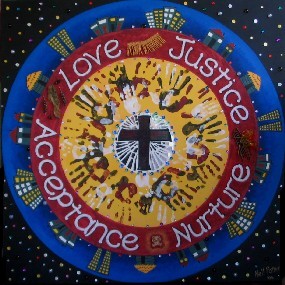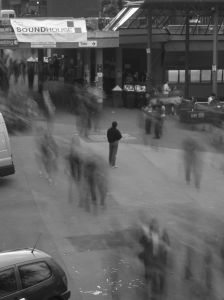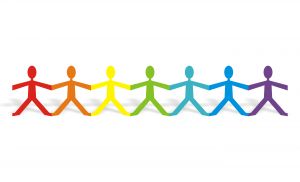A few years ago John Ortberg wrote a book called The Me I Want To Be. At first thought, the title sounds like another one of those ‘you need to believe that you’re number 1’ books that so many Christian authors trot out. But this is not about that at all. This book is about being the person God made you to be, and that is something we have a responsibility to do.
The problem with heretical doctrine is that there is always a grain of truth in it. The fact is that God has made each one of us unique. As Psalm 139 says, we are fearfully and wonderfully made. But then we get the prosperity and success preachers coming out and saying that God wants you to be fabulously beautiful and wealthy because after all, you are you, and you deserve the best. Do you see the (not so) subtle twist on a biblical truth? We need to be very very careful that we don’t cross the line from biblical truth into something that ultimately destroys us. Sometimes that line is very thin.
The biblical truth is that there will not, never has been, and never will be, anyone else like you. You really are unique. Just look at your fingerprints. No one else who has ever lived or who will ever live has or will have the same fingerprints as you. This is just one of the wonderful and fascinating aspects of a God who gives us such inherent dignity that we cannot comprehend it.
God has given each of us gifts, and we have a responsibility to use them. Most of my life I have tried to be someone else because subconsciously (and even consciously at times) I have been frightened to show my true self for fear that people wouldn’t like what they saw. For instance, I used to try to walk and talk like my elder brother, and I still try to sing like my favourite singers and sometimes make my mannerisms like my favourite people. But that is not honouring to the God who gave me unique gifts to use for the bringing in of his kingdom. Don’t try to be someone else; it is not honouring God and it is not doing justice to the gifts God gave you to give to the world.
As a child of the ’80s in terms of much of my musical influence, I have recently been getting back into The Pretenders. One of their most beautiful ballads, Hymn to Her has as its opening line, “Let me inside you, into your room. I hear it’s lined with the things you don’t show.” Many people are so driven by fear that we don’t allow others to see the image of God in us, or we don’t want to show it to others. That’s why it’s so serious, tragic and evil when children are abused in any form. The innocence and wonder of a child is taken away and they hide in their shell, possibly for the rest of their lives, trying to protect themselves from more hurt. That’s why Jesus gave such a serious and solemn warning that whoever treats these little ones like this, it would be better for a millstone to be tied around their neck and be thrown into the sea.
In his inauguration speech in 1994, Nelson Mandela quoted Marianne Williamson in saying that,
“Our deepest fear is not that we are inadequate. Our deepest fear is that we are powerful beyond measure. It is our light, not our darkness that most frightens us. We ask ourselves, Who am I to be brilliant, gorgeous, talented, fabulous? Actually, who are you not to be? You are a child of God. Your playing small does not serve the world. There is nothing enlightened about shrinking so that other people won’t feel insecure around you. We are all meant to shine, as children do. We were born to make manifest the glory of God that is within us. It’s not just in some of us; it’s in everyone. And as we let our own light shine, we unconsciously give other people permission to do the same. As we are liberated from our own fear, our presence automatically liberates others.”
When Jesus said to his followers, “you are the light of the world,” he said it in the sense that we are to live as the people God made us to be, so people could glorify God and see how good God is. The Scriptures are full of affirmations about our inherent worth and dignity. It is right and good to rest in that. It is also right and good though that we don’t stay in that place. That is why Jesus said “let your light shone before others, so that…“. God’s affirmations of us are always ‘so that’. We are saved to serve, created for “good works in Christ.”
In their song, Breathe, U2 sing “We are people born of sound, the songs are in our eyes. Gonna wear them like a crown.” Such words can be easily misunderstood. It’s a thin line between using our gifts for God and using them for our own glorification, for our own egos. Another common refrain throughout the Scriptures is simply ‘do not be afraid.’ Jesus said it often, and in saying it he echoes the many times God says it in the Old Testament. Let’s let our light so shine before others that they are drawn to God and the kingdom, and not our gifts for their own sake.








